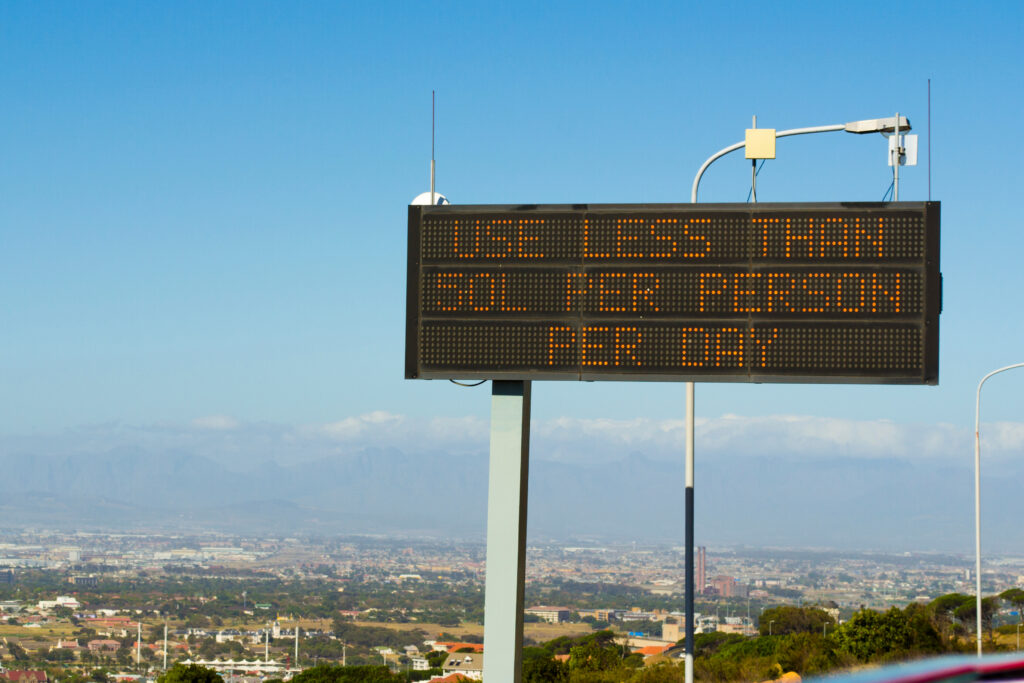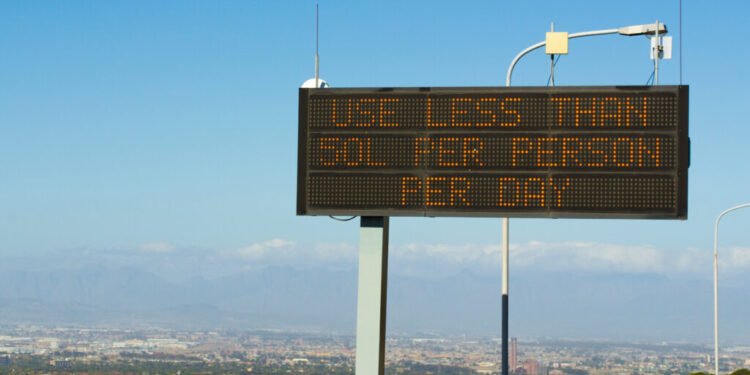Intermittent supply, excessive use, and ageing infrastructure have left Gauteng’s residents worried about a ‘day zero’ scenario. The latest blow to confidence is the implementation of Level 1 water restrictions, which could be pushed up to Level 3 in the future.
While there have been various crises in Gauteng, and particularly Johannesburg, there has always been a reassurance from Rand Water, a world leading supplier of bulk water, that there will not be a ‘day zero.’ Johannesburg Water and the Department of Water Sanitation have echoed this message. Recently this sentiment has changed, and while the City of Johannesburg and Rand Water have said that it is still not a ‘day zero’ situation, the current supply crisis is in Joburg’s executive mayor Dada Morero’s words “severe.” Rand Water in a statement released on October 24 say, “there is a real risk of supply depletion unless municipalities implement our recommendations.” The key recommendation is that municipalities reduce their water losses, repair leaks, enforce by-laws, and address illegal connections.

Public awareness and transparency were instrumental in Cape Town’s Day Zero campaign.
What is the problem
The various stakeholders agree that the key problems are:
- Excessive municipal use: Simply put, Gauteng municipalities are withdrawing too much of their supplied water. This practice leads to a supply-side problem that Rand Water say is impossible to address as they are extracting all the water that their use license allows.
- Supply constraints: South Africa is a water scarce country, and the water use licenses it issues have strict controls for how much water can extracted. Rand Water is operating at full capacity and the excessive withdrawal by municipalities cannot be rectified by Bulk Water Suppliers.
- Infrastructure: So, there is enough water, so much so that municipalities are using too much, this begs the question “so, if there is no major supply problem, and municipalities are using too much water, where is the water?” The reality is that close to 50% of water in South Africa is lost to leaks, inefficiencies, illegal water connections, and vandalism. This means municipalities are using more water, in an unsustainable manner, and then half that water never reaches end use.
What do the restrictions mean
There are 5 levels of restriction:
- Water Wise: No imposed restrictions, people are encouraged to use water efficiently and in line with “water wise” principles.
- Level 1: You are here. Restrictions imposed on watering gardens, water use in parks and sports fields, and car washes.
- Level 2: Stricter impositions on watering gardens, and car washes. Additionally, restrictions on swimming pools.
- Level 3: Highest restrictions before disaster, no water may be used outside of essential use which includes drinking and hygiene.
- Emergency response: During disaster severe restrictions are imposed on all water.
The buzzword of doom around this current crisis is ‘day zero’ but what does that actually mean? Day zero is the term given when a city can no longer supply water to its residents, it is the first day of no-supply. It must be said that right now Gauteng is not facing an actual day zero scenario, but if the situation continues as is the likelihood increases.

Water restrictions are a good way to avoid disaster.
Who is at fault?
While it may seem like a good idea to point fingers, experts within the water sector agree that responsibility for the water crisis does not rest with one entity, but with all. Water Can, an organisation that encourages active citizenship in water, say that “This crisis is a decade in the making.” The years of state capture, mismanaged municipalities, and year-long delays in key projects have joined their impact to create the current conditions, ripe for disaster.
What can be done?
The mission to avoid day zero should be seen as the mission to provide long-term water security. This can only be done by adding and maintaining infrastructure. This year Rand Water set out on a massive maintenance project to secure its supply infrastructure, following this the City of Johannesburg has also started its infrastructure upgrades projects. The eventual finalising of the Lesotho Highlands Water Project (LHWP) tunnel, one of the delayed projects that lead to this crisis, is also on the horizon. These large-scale projects will help with water security, but the immediate focus is on balancing the supply with the demand. This is currently being done through Level 1 restrictions in Gauteng, but Deputy President Paul Mashatile has said, “DWS is working with municipalities to implement level 2 and 3 water restrictions” which were the same steps that the City of Cape Town set out in their avoiding day zero initiatives. There is a crisis, it is not yet a disaster. Citizens are encouraged to report leaks to their municipality, not rand Water, and use water sparingly and sustainably.









